Most of Us Are Deficient, Even if You live in A Sunny Climate.
Just some of the things this vitamin is helpful with – Low Mood, Pregnancy, Weight gain, Low Immunity, Fertility, Thyroid, Gut, Brain, Bones, Heart…..are you sure you’re getting enough?
The level of Vitamin D deficiency is quite staggering, with most adults believed to be deficient – think lack of exposure to sunshine, spending way too much time inside and sunscreens (if you happen to live in a sunny, hot climate) and we’re only getting a fraction of the vitamin D we need.
It is one of the most common deficiencies I see!
Some studies estimate that one billion people worldwide have insufficient Vitamin D levels. However, the rate of true Vitamin D deficiency is likely even higher, because new research indicates that the previous recommended levels of Vitamin D were actually too low.
The widespread deficiency of Vitamin D is concerning because it plays an important role in many areas of our health. It contributes to bone strength, hormones, heart health, and cancer prevention. And, it plays a hugely important role in your immune system and can be a determining factor in whether or not you develop an autoimmune disease.
What is Vitamin D?
It’s name is slightly misleading, as vitamin D is both a vitamin and a hormone, stored in your liver and fatty tissues..
How Your Body Gets Vitamin D From the Sun
The amount of melanin (which is the substance that affects how light or dark your skin colour is) you have in your skin affects the amount of vitamin D you can produce; the fairer your skin, the more easily you can make vitamin D.
Melanin gets released when we are exposed to the ultraviolet rays of sunshine, which is why it’s often called “the sunshine vitamin,” The more sunshine we receive, the more melanin is released in our skin. Cholesterol in your skin then converts melanin into usable vitamin D.
Signs You Might Be Deficient in Vitamin D

- Aches & pains – low levels can make you feel more feel more achiness in your bones and muscles,.
- Feeling blue – you might need to improve levels of serotonin that are known to boost your mood. Studies have shown healthy adults given vitamin D supplements during the cooler months reported greater positive mood than given a placebo.
- You’re 50 or older – your skin makes less as you get older, and your kidneys start to become less productive when it comes to converting vitamin D into the form the body uses. Many adults over 50 also end to spend less time outdoors and less sun exposure.
- You’re overweight – Vitamin D is fat soluble, which means the more body fat you have, the more it gets diluted. People who are overweight may require more daily vitamin D to make up for this dilution effect.
- You have darker skin – To make the same amount of vitamin D, someone with darker skin needs 10 times the amount of sun exposure compared to someone with very pale complexion.
- Use Sunscreen frequently – although sunscreen is highly recommended, a sunscreen with higher SPF levels, reduces your skin’s ability to make vitamin D.
- Fertility issues/ Low libido – Vitamin D deficiency can cause low oestrogen in women, which means low sex drive. It also causes low testosterone in men.
- Lack of Sun – Most of us spend more time indoors, and time inside our homes sheltered from the sun.
Why is Vitamin D crucial for good health and preventing disease
Vitamin D is the precursor to your steroid hormones and is best-known for its bone supporting function. It’s also really important for regulating your insulin production to ensure optimum blood sugar balance, enhancing immunity, hormone production, supporting heart health and regulating your mood.
Bones
Vitamin D plays a role in calcium absorption into the bones. It has an effect on other important vitamins and minerals that contribute to your bone health. including vitamin K and phosphorus.
A deficiency can result in a softening of your bones called osteomalacia, increasing the risks for osteoporosis, fractures or broken bones.
Adequate levels can naturally slow the ageing of the your bones.
Hormones – Thyroid health, Fertility & Pregnancy
Vitamin D regulates the production of your thyroid hormones, one of the most powerful glands in your body, regulating everything from metabolism and body temperature to hormonal balance and sleep patterns, maintaining a healthy weight, your mood, immunity, energy levels, also keeping your hair, skin, and nails youthful and strong.
It’s also a key player in fertility, pregnancy and recovery. Therefore, if you want to increase your chances of a healthy conception, pregnancy, and postpartum period, protecting your thyroid is key.
Low levels of vitamin D can also interfere with proper testosterone and oestrogen production, leading to imbalances which can result in many unwanted symptoms.
Vitamin D linked with fertility success
A recent study published in the journal Human Reproduction compared data from results of pregnancy tests and found women who were low in vitamin D were 34% less likely to have a positive result.
Reduces Breast Cancer Risks
It has been shown to help reduce the risk of breast cancer because it helps prevent abnormal cells from multiplying.
Immunity
Vitamin D can enhance your immune response against various infections such as tuberculosis, colds & flu and viral infections. It helps with healthy cell replication and may play a role in protecting against the development of autoimmune conditions
Vitamin D works as a kind of switch in your body, sufficient levels of Vitamin D reduce your risk of infections by strengthening your innate immune system. It triggers your immune system anti-microbial response, allowing you to quickly and effectively fight off invaders before they can develop into a full-blown infection.
It’s also been shown that vitamin D seems to prevent prolonged or excessive inflammatory responses. Inflammation is often at the root of many modern, chronic diseases and autoimmune disorders: multiple sclerosis, rheumatoid arthritis, irritable bowel syndrome and other digestive disorders, high blood pressure, and more.
Mood
Vitamin D also has an effect on your mood. It activates the genes that release dopamine and serotonin. The lack of these neurotransmitters is commonly linked to depression.
This connection might help explain Seasonal Affective Disorder, or SAD when you’re getting less vitamin D, and therefore less dopamine and serotonin.
Ageing, Brain Health & Heart Disease
Elderly people with a moderate-to-severe Vitamin D deficiency are more likely to develop dementia and Alzheimer’s disease.
An international team of researchers spent six years looking at 1,658 Americans, aged 65 or older, who at the start of the study had not suffered from dementia, cardiovascular disease or a stroke—and who could walk without assistance. The team found that adults who were moderately deficient in Vitamin D were 53% more likely to develop a form of dementia; those with a severe deficiency were 125% more likely to be stricken with the disease.
How To Ensure You Are Getting Enough Vitamin D
Based on the current research, moderate sun exposure is best. Try to get out in the sun for approximately 15 minutes a day without any sunscreen (check the skin cosmetics you use, as most contain in-built sun protection factors that will block sunlight).
Due to the Western diet and an indoor lifestyle, it is becoming harder for us to maintain adequate levels of vitamin D in our body.
Food sources of vitamin D include oily fish, such as salmon, mackerel and sardines, eggs and raw milk.
Due to the increase of fish and poultry farming, vitamin D levels in these sources are lower than expected. For example, farmed salmon was found to have approximately 75% less vitamin D in comparison to wild salmon.
Therefore, a vitamin D supplement is essentially the best way of ensuring that we get your daily dose of vitamin D.
Get Tested
The safest way to optimise your vitamin D consumption is to monitor your blood levels. To do so, order a 25-hydroxy vitamin D test, also known as the 25-OH D test. The optimal (not just “normal”) amount you want to see is 45 to 65 ng/mL, and in some cases, even higher levels are appropriate.
The RDA for vitamin D according to the USDA is 600 IU/day for adults. I often recommend getting 5000 IU/day, for a short term period to help raise the blood levels to adequate levels.
However keep in mind that this is a general recommendation and there is no way to know the exact amount that’s best for you without a blood test.
All vitamins are team players be sure have good levels of minerals such as calcium and magnesium that normally interact with it.
In Summary
I highly recommend that most of my patients get their vitamin D levels checked more frequently.
Why? Because having optimal vitamin D levels are crucial to nearly every single one of your body’s functions, and getting your vitamin D levels to right level sooner rather than later can prevent many chronic ailments from appearing later in your life.
I’d Like to invite you to make use of my offer of a FREE mini CONSULT, please click HERE and to book your appointment.
I’d love to chat on the phone/skype if you’re looking for more support managing your fatigue, low energy, hormonal imbalances and skin issues.
I so enjoy talking to women and helping them with their health. Please feel free to share if you have friends or family who might need help.

 infections.
infections.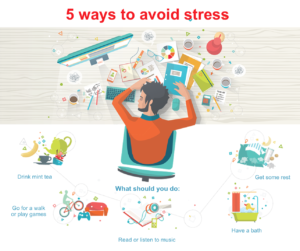

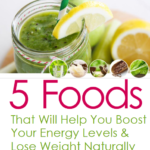
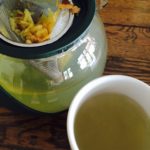 Nothing like a good cuppa tea to sort out the problems of the world. My grandmother loved her tea and it was the first thing we’d do when we visited her, I do miss being able to sit down and share a pot of tea with her.
Nothing like a good cuppa tea to sort out the problems of the world. My grandmother loved her tea and it was the first thing we’d do when we visited her, I do miss being able to sit down and share a pot of tea with her. need to know which one to use when and you may have be unaware of some of the other things these common herbal teas can be useful for. Chamomile is calming but so much more, peppermint for wind and so much more, ginger for nausea and so much more…..
need to know which one to use when and you may have be unaware of some of the other things these common herbal teas can be useful for. Chamomile is calming but so much more, peppermint for wind and so much more, ginger for nausea and so much more….. Rose
Rose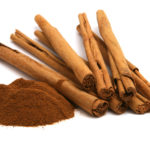 reduce your sugar cravings. By controlling blood sugar levels you can prevent spikes after meals, normalise your blood sugar levels and improve glucose control.
reduce your sugar cravings. By controlling blood sugar levels you can prevent spikes after meals, normalise your blood sugar levels and improve glucose control. Pelargonium (Pelargonium sidoides) is gaining huge popularity in Germany because of it’s effectiveness against the symptoms associated with colds and flus, and it is the best researched herbal cold and cough remedy. It helps to reduce the mucus of snotty noses and phlegm that makes it hard to breathe, improves a bad cough and any associated chest pain, and decreases congestion to help open the breathing passages.
Pelargonium (Pelargonium sidoides) is gaining huge popularity in Germany because of it’s effectiveness against the symptoms associated with colds and flus, and it is the best researched herbal cold and cough remedy. It helps to reduce the mucus of snotty noses and phlegm that makes it hard to breathe, improves a bad cough and any associated chest pain, and decreases congestion to help open the breathing passages.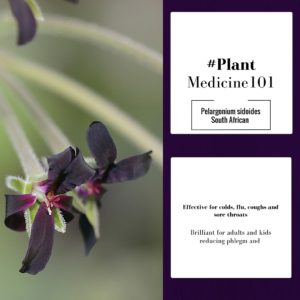 increases your body’s natural healing rate. Studies have found that 40-60% of patients suffering from acute bronchitis fully resolve their symptoms within a week of Pelargonium sidoides supplementation.Some people reported experiencing benefits after just two to three days. People that are not cured after a week still experience benefits from Pelargonium sidoides supplementation, since it can treat the symptoms associated with bronchitis, including headache, fever, fatigue, cough, chest pain while coughing, sputum in the lungs, rhonchi, and nasal dripping. A 2008 report published in Phytomedicine. In their analysis of six clinical trials testing pelargonium’s efficacy as an acute bronchitis treatment, the report’s authors found that pelargonium significantly improved symptoms of acute bronchitis without causing any serious side effects.
increases your body’s natural healing rate. Studies have found that 40-60% of patients suffering from acute bronchitis fully resolve their symptoms within a week of Pelargonium sidoides supplementation.Some people reported experiencing benefits after just two to three days. People that are not cured after a week still experience benefits from Pelargonium sidoides supplementation, since it can treat the symptoms associated with bronchitis, including headache, fever, fatigue, cough, chest pain while coughing, sputum in the lungs, rhonchi, and nasal dripping. A 2008 report published in Phytomedicine. In their analysis of six clinical trials testing pelargonium’s efficacy as an acute bronchitis treatment, the report’s authors found that pelargonium significantly improved symptoms of acute bronchitis without causing any serious side effects.


